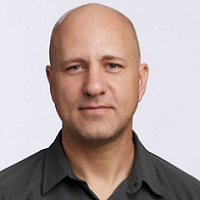 By Branden Neish, Chief Product & Technology Officer, Weave
By Branden Neish, Chief Product & Technology Officer, Weave
LinkedIn: Branden Neish
LinkedIn: Weave
The explosion of artificial intelligence has led to rapid transformation across all industries and healthcare has been no exception. The use of AI in healthcare has sparked a complex conversation on the potential ethical concerns and the processes for implementation, but as AI has become increasingly ubiquitous in day-to-day life, attitudes toward AI in healthcare are starting to shift.
Now, more than a year after the initial AI boom, both patients and providers are starting to expect the integration of AI into everyday practice workflows and are excited about the host of incredible benefits generative AI can bring to the industry. From streamlining administrative tasks to enabling more personalized and accurate care, AI is ushering in a new era of efficiency, precision and improved patient outcomes.
Achieving true administrative efficiency
Administrative tasks like appointment scheduling, billing and record-keeping are a key cog in the healthcare machine, but they can also be time-consuming and tedious. When staff must manually input critical patient information and navigate contrasting schedules, the likelihood of mistakes also rises. By implementing AI, staff can streamline these processes to unlock increased efficiency and ultimately enable practitioners to devote more time to patient care and improve the overall patient experience.
Appointment scheduling is a prominent potential utilization of AI in healthcare administration, and patients know it. Recent data found that 2 in 5 Millennials (40%) and nearly half of Gen Z (47%) believe that AI will allow them to schedule appointments more easily.
Smart scheduling systems can quickly pull data on patient preferences and match it with clinician availability to optimize appointment slots and minimize wait time. The benefits of smart scheduling apply not only to patients by providing timely access to care, but also allow healthcare providers to allocate resources more effectively.
Improving the patient experience through personalization and communication
When it comes to the accuracy and efficiency in diagnoses, the use of AI technology is giving practices and clinicians an extra edge. The first step in properly diagnosing a patient is having up-to-date, accurate insight into their symptoms and medical history. AI-powered systems can analyze vast amounts of patient data, including medical history, preferences, and treatment outcomes, to tailor care plans and interventions. The result is more personalized care, which often leads to more accurate care.
Beyond the quality of care itself, AI can power better communication between patients and providers. Effective communication is the cornerstone of high-quality healthcare experiences and AI tools are poised to break down stubborn communication barriers with 1 in 4 consumers (27%) believing that AI will allow better communication with their doctor and staff according to the same report.
For example, many healthcare platforms are integrated with AI-powered chatbots to provide instant responses to patient queries. These automated systems can also offer information on medications, appointment details and general health inquiries – creating a 24/7 communication channel for patients. This not only improves patient satisfaction, as they’re able to communicate with their providers when and where is best suited to their schedules, but also reduces the burden on healthcare staff, allowing them to focus on more important tasks.
The case for implementing AI technology
The integration of AI in healthcare is more than a trend. It is a fundamental shift towards a smarter, more efficient healthcare ecosystem. It is also a shift that consumers are coming to expect. More than 1 in 3 consumers (36%) claim that they would switch healthcare providers if another provider was utilizing AI technology in their practice and their current provider was not. Notably, that number increases among younger generations with nearly half of Millennials (49%) and 44% of Gen Z saying the same.
By embracing the transformative power of AI, healthcare providers can optimize their operations and elevate the standard of care they deliver to patients, giving their bottom lines a boost. Labor shortages and burnout continue to hit the healthcare industry especially hard and modern technology tools will be key in making the most of tight resources and time amongst staff. For providers looking to gain a competitive edge and create long-term benefits for both their patients and staff, AI will serve as a powerful ally in navigating better patient care, streamlining operations and driving efficiency.
